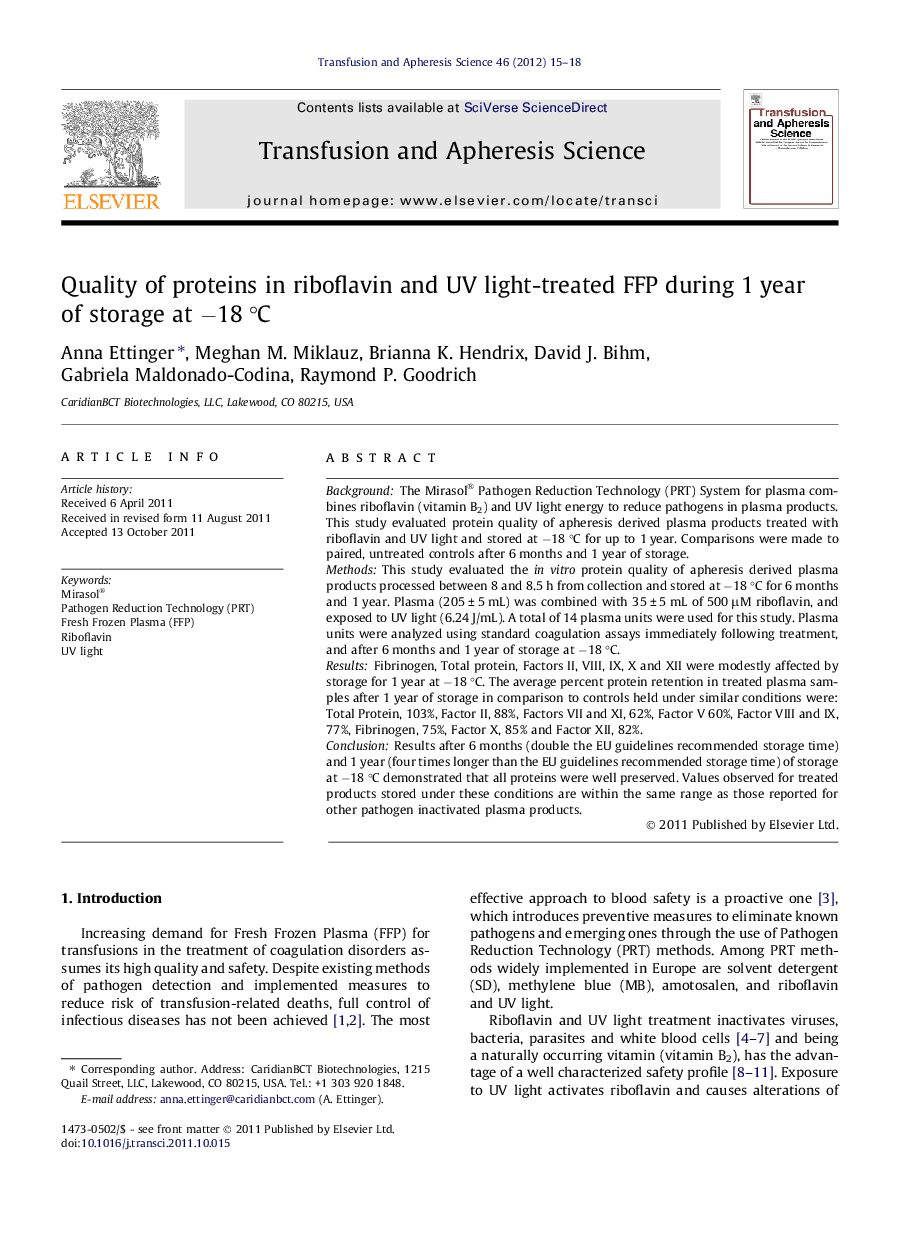| Article ID | Journal | Published Year | Pages | File Type |
|---|---|---|---|---|
| 3335438 | Transfusion and Apheresis Science | 2012 | 4 Pages |
BackgroundThe Mirasol® Pathogen Reduction Technology (PRT) System for plasma combines riboflavin (vitamin B2) and UV light energy to reduce pathogens in plasma products. This study evaluated protein quality of apheresis derived plasma products treated with riboflavin and UV light and stored at −18 °C for up to 1 year. Comparisons were made to paired, untreated controls after 6 months and 1 year of storage.MethodsThis study evaluated the in vitro protein quality of apheresis derived plasma products processed between 8 and 8.5 h from collection and stored at −18 °C for 6 months and 1 year. Plasma (205 ± 5 mL) was combined with 35 ± 5 mL of 500 μM riboflavin, and exposed to UV light (6.24 J/mL). A total of 14 plasma units were used for this study. Plasma units were analyzed using standard coagulation assays immediately following treatment, and after 6 months and 1 year of storage at −18 °C.ResultsFibrinogen, Total protein, Factors II, VIII, IX, X and XII were modestly affected by storage for 1 year at −18 °C. The average percent protein retention in treated plasma samples after 1 year of storage in comparison to controls held under similar conditions were: Total Protein, 103%, Factor II, 88%, Factors VII and XI, 62%, Factor V 60%, Factor VIII and IX, 77%, Fibrinogen, 75%, Factor X, 85% and Factor XII, 82%.ConclusionResults after 6 months (double the EU guidelines recommended storage time) and 1 year (four times longer than the EU guidelines recommended storage time) of storage at −18 °C demonstrated that all proteins were well preserved. Values observed for treated products stored under these conditions are within the same range as those reported for other pathogen inactivated plasma products.
